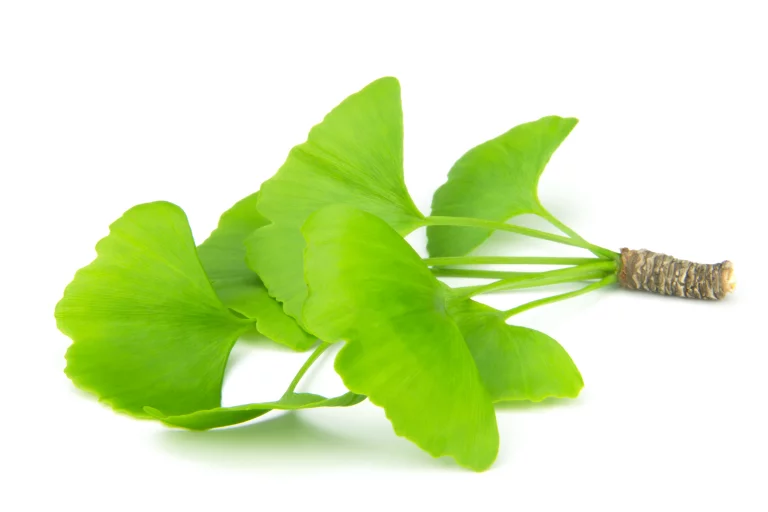Ginkgo biloba and its greatest benefit

Ginkgo biloba, also known as the maidenhair tree, is probably the most famous so-called living fossil in the plant world and the oldest living seed plant. It occurs naturally only in a small area of the Tianmu Shan Mountains in China. It is popularly planted as an ornamental tree in parks and gardens. It is resistant to pathogens, pollution, drought and low temperatures. Its species name refers to the characteristic shape of its rapeseed leaves.
WHAT IS GINKGO BILOBA?
Ginkgo biloba is known mainly for its ability to withstand the harsh conditions of so-called environmental stress, especially pollutants, waste and pesticides. It is also one of the oldest living tree species on our planet, the so-called living fossils. It is not surprising that in the time that humanity has come to know it, it has managed to find application in many areas. Ginkgo contains more than 40 active ingredients, while the strongest, namely antioxidants (scavengers and scavengers of free radicals) flavonoids and terpenes, can be found in its leaves, which can be used either as a whole or can be used to make various extracts. In particular, due to the content of the above-mentioned compounds, ginkgo is very beneficial for the activity of the cardiovascular system, cognition and mood by causing blood vessels to dilate, thereby improving blood flow and oxygen supply to many organs - brain, ears, eyes and the like [1]. It is an interesting alternative for those of you who are not inclined to the effects of a more common stimulant such as caffeine, Tribulus or Rhodiola.
GINKGO BILOBA AND BRAIN
Although ginkgo biloba is known mainly for its positive effect on cognition and memory, there are different opinions in professional circles on this issue. However, studies on volunteers who receive 120 milligrams of ginkgo extract per day have supported previously established hypotheses in its favour [2, 3], especially with regard to short-term memory activity [4]. Furthermore, further research has pointed to the fact that ginkgo biloba has a positive effect on mood [5]. In practice, this means that you can indulge in ginkgo as a great wake-up call for Monday morning and at the same time as a tool for better focus on work.
GINKGO BILOBA AND PMS
It is no secret that approximately 70-90 percent of women of childbearing age face the physical, mental and behavioural health problems that come with PMS - premenstrual syndrome - each month, and 10 percent of them can be considered serious [6]. Dear ladies and gentlemen, we have an incredibly positive message for you - two independently conducted studies have proved that ginkgo biloba can excellently alleviate the symptoms resulting from premenstrual syndrome [7].
IN WHICH FORMS IS GINKGO AVAILABLE?
You can indulge in Ginkgo in many forms. Probably the most popular is the extract in tablet or powder form, but teas and other ginkgo products are freely available on the market. When choosing the right form, we propose that you monitor the content of flavonoids and terpenes in them and, of course, the percentage of ginkgo in the product itself. In general, a precisely proportional relationship applies, namely, the more one receives it, the stronger and faster its final effect. For the recommended dose, a daily dose of 120 to 240 milligrams is recommended. This amount can be taken at once or divided into two or three doses.
POSSIBLE SIDE EFFECTS
Ginkgo biloba is generally considered safe, although side effects, as with other stimulants, are present. Above all, you need to be careful and consult your doctor if you are taking anticoagulant, i.e. medicines that reduce blood clotting and platelet activity. Otherwise, you will not be at risk of serious side effects if you follow the recommended dosage.
SOURCES
Van Beek, T. A. (2002). Chemical analysis of Ginkgo biloba leaves and extracts. Journal of Chromatography A, 967(1), 21-55.
DeKosky, S. T., Williamson, J. D., Fitzpatrick, A. L., Kronmal, R. A., Ives, D. G., Saxton, J. A., ... & Kuller, L. H. (2008). Ginkgo biloba for prevention of dementia: a randomized controlled trial. Jama, 300(19), 2253-2262.
Snitz, B. E., O’meara, E. S., Carlson, M. C., Arnold, A. M., Ives, D. G., Rapp, S. R., ... & DeKosky, S. T. (2009). Ginkgo biloba for preventing cognitive decline in older adults: a randomized trial. Jama, 302(24), 2663-2670.
Rigney, U., Kimber, S., & Hindmarch, I. (1999). The effects of acute doses of standardized Ginkgo biloba extract on memory and psychomotor performance in volunteers. Phytotherapy research, 13(5), 408-415.
Kennedy, D. O., Scholey, A. B., & Wesnes, K. A. (2002). Modulation of cognition and mood following administration of single doses of Ginkgo biloba, ginseng, and a ginkgo/ginseng combination to healthy young adults. Physiology & Behavior, 75(5), 739-751.
Tamborini, A., & Taurelle, R. (1993). Value of standardized Ginkgo biloba extract (EGb 761) in the management of congestive symptoms of premenstrual syndrome. Revue Francaise de Gynecologie et D'obstetrique, 88(7-9), 447-457.
Ozgoli, G., Selselei, E.A., Mojab, F., Majd, H.A., A Randomized, Placebo-Controlled Trial of Ginkgo biloba L. in Treatment of Premenstrual Syndrome. The Journal of Alternative and Complimentary Medicine, 2009. 15(8).
Wu, Y., Li, S., Cui, W., Zu, X., Du, J., & Wang, F. (2008). Ginkgo biloba extract improves coronary blood flow in healthy elderly adults: role of endothelium-dependent vasodilation. Phytomedicine, 15(3), 164-169.



